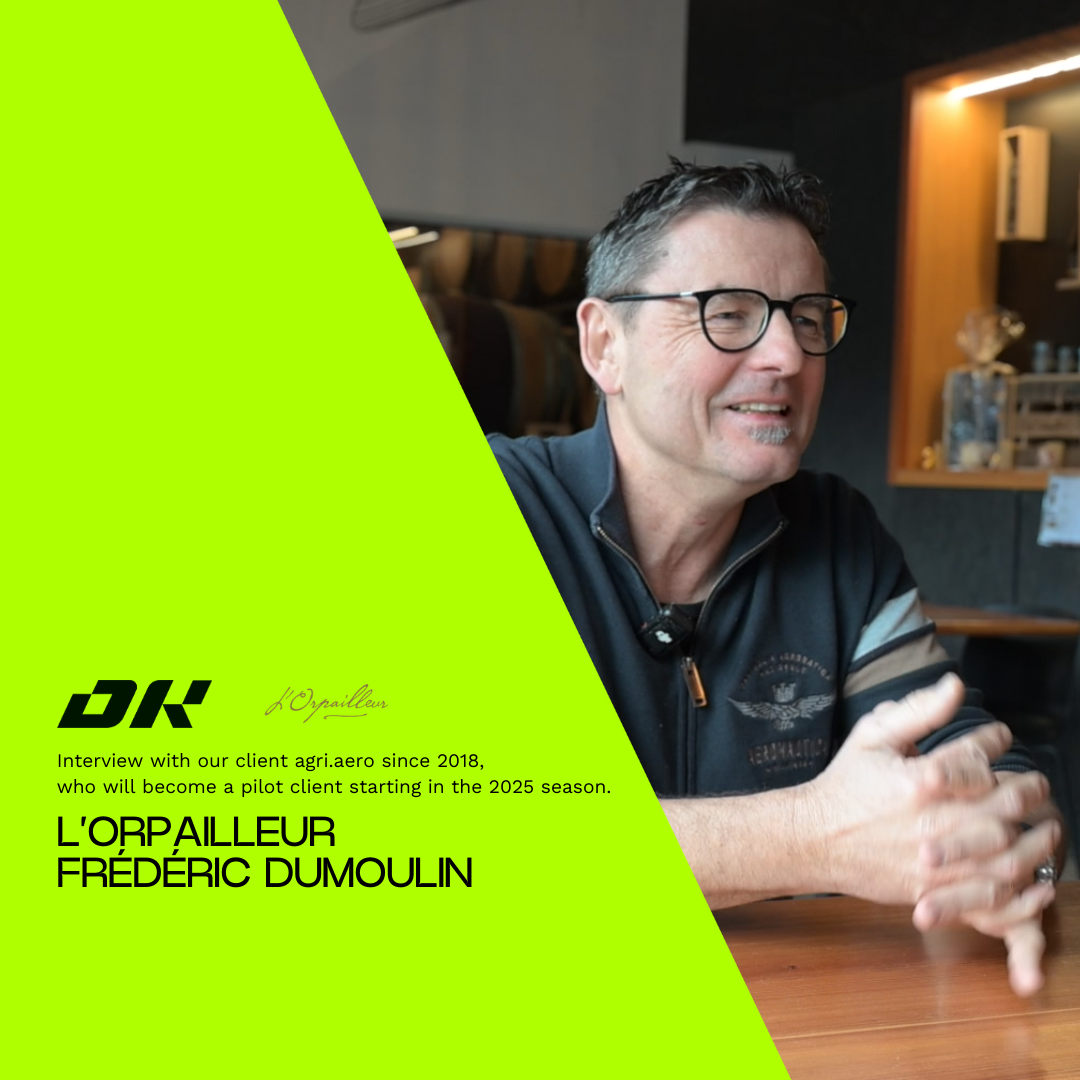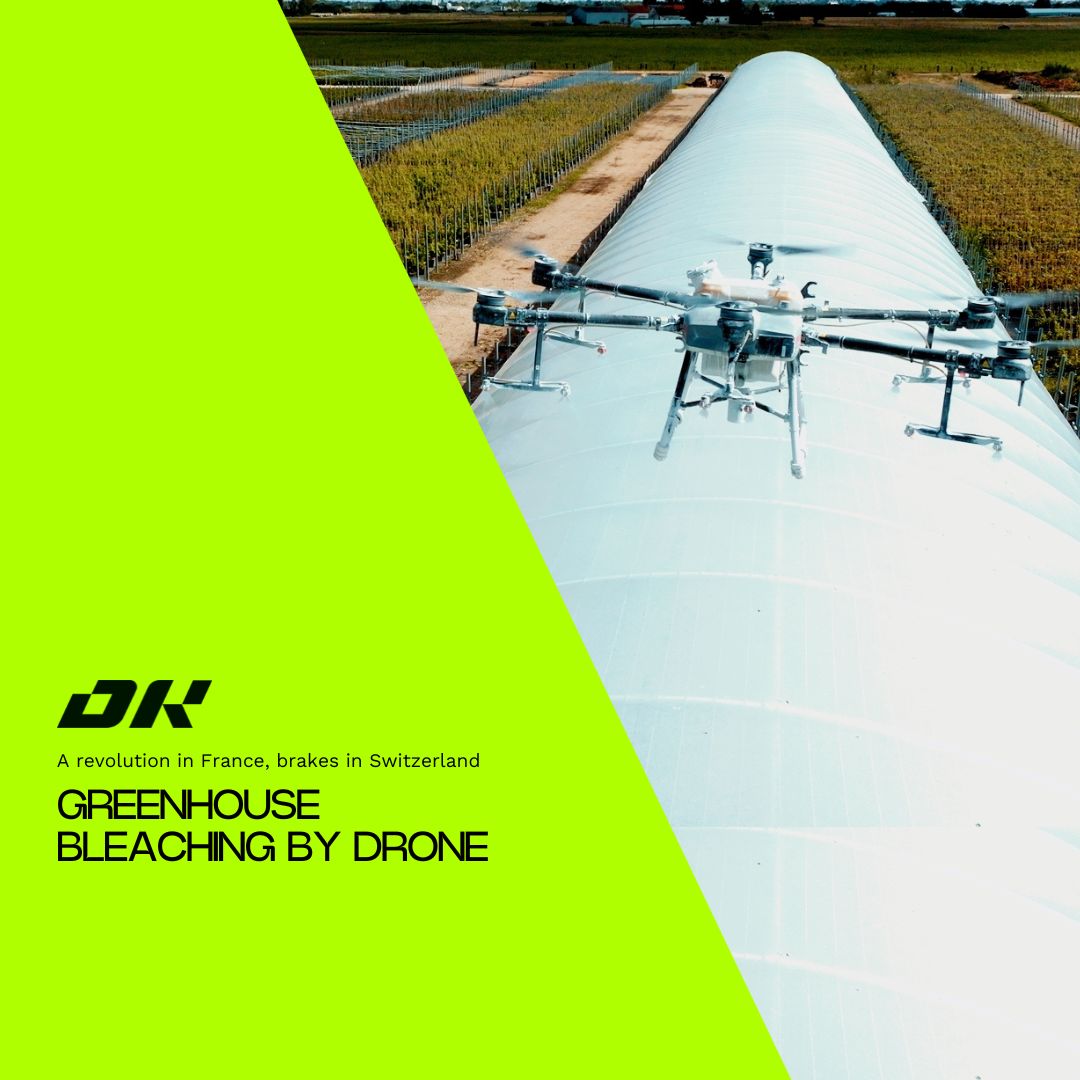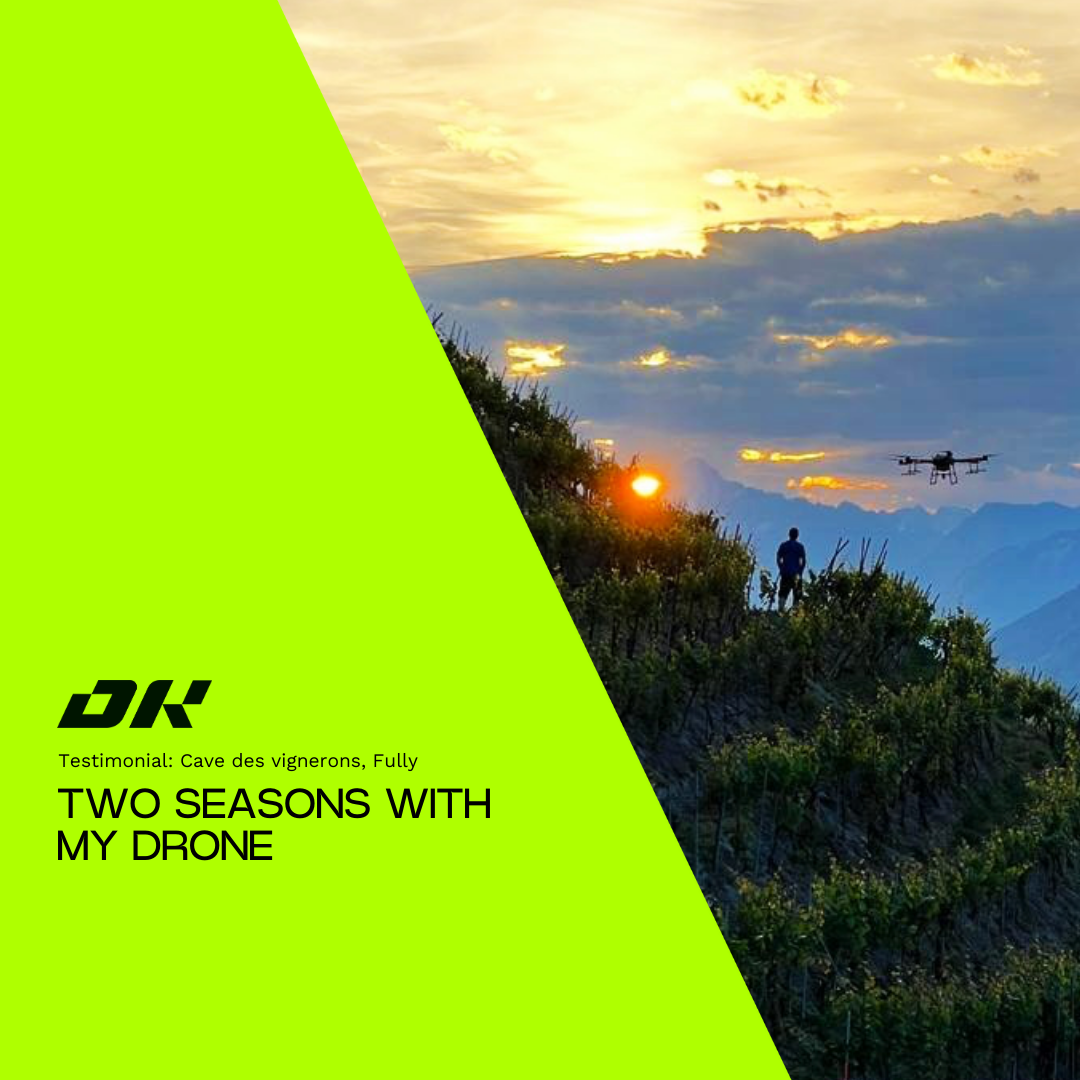Innovation at the service of winegrowing tradition: interview with Frédéric Dumoulin from the l’Orpailleur winery

In the world of wine, tradition and innovation often coexist brilliantly. That’s the case with Frédéric Dumoulin, owner of the l’Orpailleur winery in Uvrier, who combines respect for ancestral viticultural practices with the adoption of new technologies to meet today’s challenges. In this interview, Frédéric shares his experience, his strategic choices and his thoughts on the future of wine growing.
A family heritage driven by innovation
Frédéric Dumoulin describes himself first and foremost as “Germain and Madeleine’s son”, paying tribute to his roots. As owner of the l’Orpailleur winery, he has been involved in all aspects of the business: winegrower, oenologist, winemaker, and now manager. But running a winery doesn’t mean standing still. Since 2018, Frédéric has been exploring the solutions offered by agricultural drones, thanks to his collaboration with Agri.aero.
Drones, a revolution in the vineyards
When asked why he adopted drones, Frédéric explains that it all started with a convincing demonstration. From the very first season, he could see the benefits: making it easier to work on difficult-to-access plots and improving the efficiency of treatments.
Since then, drones have continued to evolve. “The increased capacity of drones has led to greater efficiency and improved treatments”, he observes. This year, he is going one step further by investing in his own model, the T50. This machine offers increased capacity (50 litres compared with 30 for the previous models), reducing the number of trips needed to fill the tank and thus increasing productivity.
Reduce drudgery and maximise results
For Frédéric, using drones is not just a question of efficiency. It’s also about reducing the strain on his staff. The drone makes it possible to work at a distance, limiting the physical effort often associated with using a caterpillar. However, he stresses that this technology requires rigorous organisation, particularly for the transport and deployment of the equipment.
A balance between tradition and modernity
Although drones have revolutionised certain practices, Frédéric remains attached to other traditional methods. Ground treatment, for example, is still preferred for certain sensitive grape varieties. “For specialities like Petite Arvine or Joannis, ground treatment is frequently necessary to guarantee optimum quality,” he explains.
He also discusses the challenges of organic farming, which he sometimes considers to be ecologically demanding. “In a complicated year like 2024, we made seven passes instead of the 14 or 15 needed for organic, while still achieving satisfactory results.”
Guaranteeing wine quality is an absolute priority
Another key issue for Frédéric is consumer health and safety. At the l’Orpailleur winery, analyses of residues in the wine are carried out regularly. So far, the results are clear: zero residues. For him, producing a healthy wine is non-negotiable, whether by using natural treatments such as Bordeaux mixture or by optimising existing practices.
Looking to the future
In conclusion, Frédéric encourages other winegrowers to experiment with these technologies, first by using service providers, before making a purchase. “Testing allows you to see if the method suits your needs before investing. With weather conditions becoming increasingly unpredictable, reducing treatment time is crucial, and drones seem to offer a suitable solution to this challenge.
Conclusion
Frédéric Dumoulin’s experience is a perfect illustration of how tradition and innovation can coexist in the world of wine. Using modern tools such as drones, while keeping an eye on tried and tested methods, he manages to combine respect for the terroir with efficiency. A fine example for winegrowers who want to evolve while preserving the essence of their profession.












